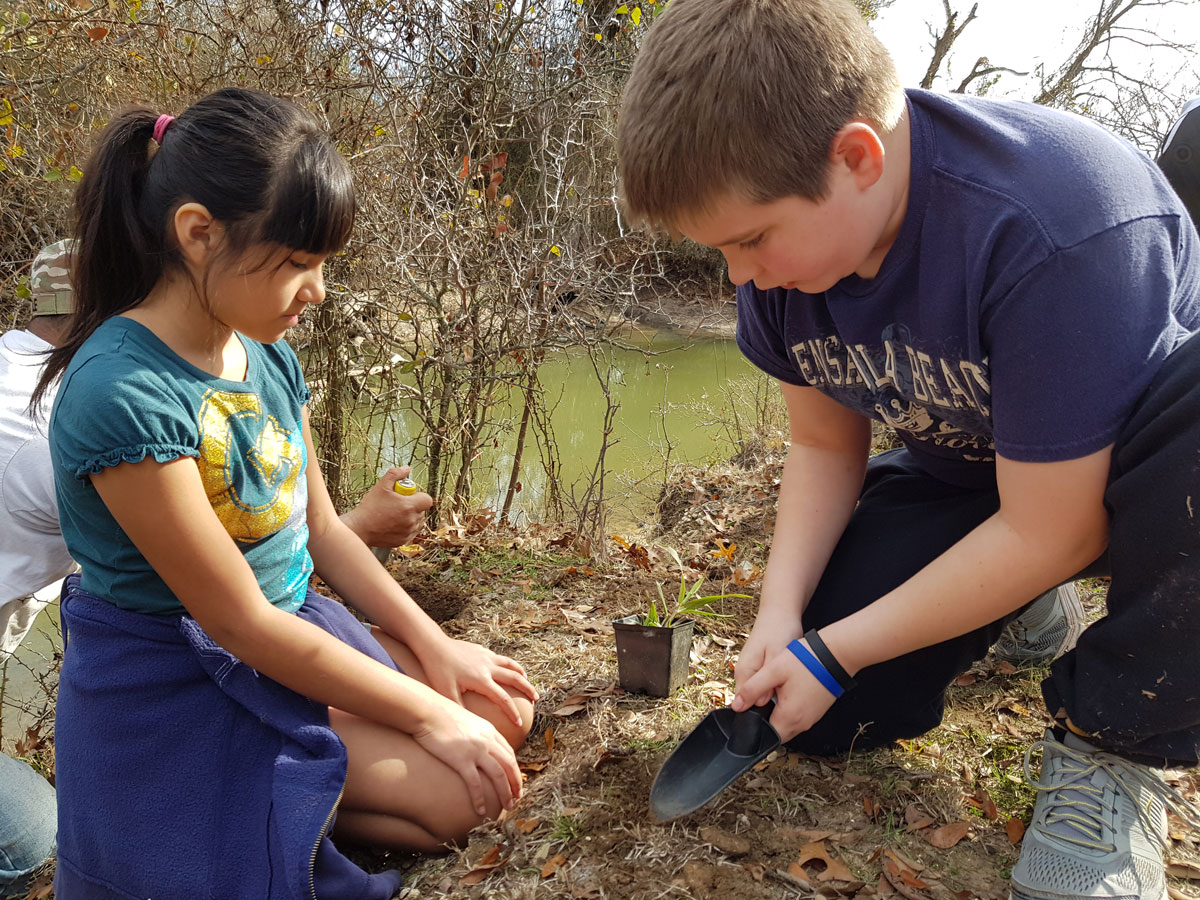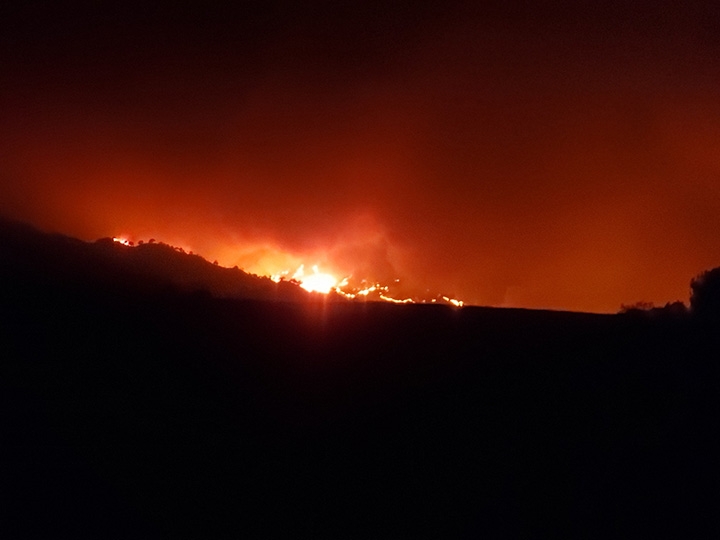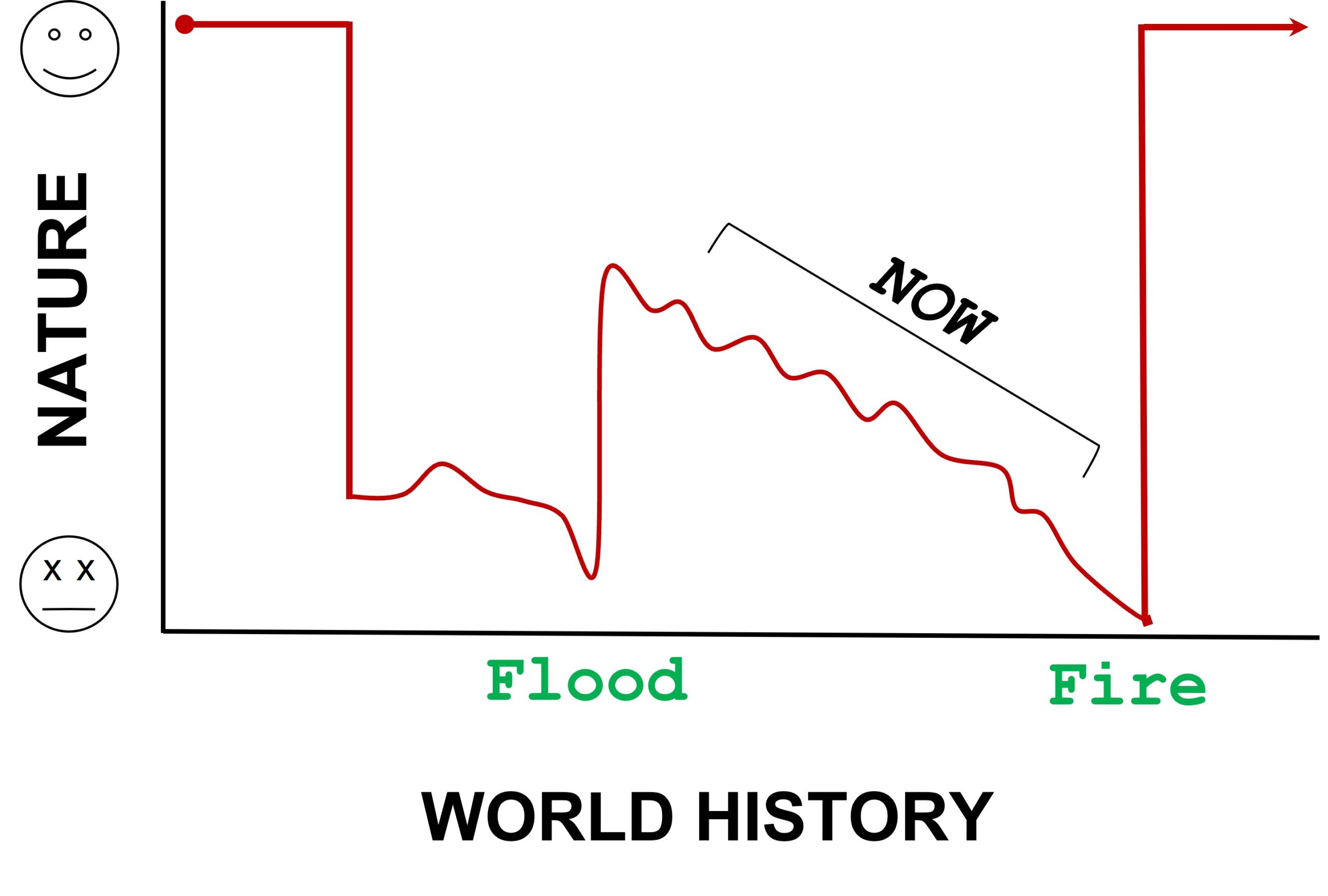“It’s all gonna burn anyway.”
This is true. In the days of Noah, water was God’s instrument to renew the earth. On the last day, fire will be God’s instrument to cleanse the heavens and the earth as it gives way to the New Creation. See 2 Peter 3:1-13 for the fiery details.
Sadly, some Christians (gladly, not all) exploit this truth to affirm a lie: that there is no godly purpose in caring for creation.
First Thessalonians 4:11-12 provides an antidote to such complacency:
“…[A]spire to live quietly, and to mind your own affairs, and to work with your hands, as we instructed you, so that you may walk properly before outsiders and be dependent on no one.”
The Thessalonian church was comprised of young, fervent believers. They gave considerable attention to the second coming of Christ – we would do well to follow their example! However, some had apparently eschewed work in anticipation of our Savior’s imminent return and the end of the present world order. Paul gently corrected them by turning their focus away from the when and onto the what and who. Since we don’t know the day or hour, we should work so that when He comes He will find us on task. Jesus told the following parable to His disciples within a larger lesson about the final judgment.
“For it will be like a man going on a journey, who called his servants and entrusted to them his property. 15 To one he gave five talents, to another two, to another one, to each according to his ability. Then he went away. 16 He who had received the five talents went at once and traded with them, and he made five talents more. 17 So also he who had the two talents made two talents more. 18 But he who had received the one talent went and dug in the ground and hid his master’s money. 19 Now after a long time the master of those servants came and settled accounts with them. 20 And he who had received the five talents came forward, bringing five talents more, saying, ‘Master, you delivered to me five talents; here, I have made five talents more.’ 21 His master said to him, ‘Well done, good and faithful servant. You have been faithful over a little; I will set you over much. Enter into the joy of your master.’ 22 And he also who had the two talents came forward, saying, ‘Master, you delivered to me two talents; here, I have made two talents more.’ 23 His master said to him, ‘Well done, good and faithful servant. You have been faithful over a little; I will set you over much. Enter into the joy of your master.’ 24 He also who had received the one talent came forward, saying, ‘Master, I knew you to be a hard man, reaping where you did not sow, and gathering where you scattered no seed, 25 so I was afraid, and I went and hid your talent in the ground. Here, you have what is yours.’ 26 But his master answered him, ‘You wicked and slothful servant! You knew that I reap where I have not sown and gather where I scattered no seed? 27 Then you ought to have invested my money with the bankers, and at my coming I should have received what was my own with interest. 28 So take the talent from him and give it to him who has the ten talents. 29 For to everyone who has will more be given, and he will have an abundance. But from the one who has not, even what he has will be taken away. 30 And cast the worthless servant into the outer darkness. In that place there will be weeping and gnashing of teeth.’ ~ Matthew 25:14-30
When the waters of the flood had subsided, God made a covenant with Noah and all creation that He would never again destroy it by a flood. He also commanded them to be fruitful and multiply, just as He had commanded man and beast to do when the world was young and pure and Adam had not yet brought sin and death into it. Uncorrupted or fallen, nature was to be fruitful and multiply and it was subject to man’s stewarding wisdom or folly. God knew that one day the corrupted creation we now know would one day be burned with a “fervent heat” and give way to a New Heaven and New Earth. Nevertheless, he charged Noah and future generations to work on behalf of creation so that it could fulfill it’s call to fruitfulness: lots of lots of different living things thriving. This means conservation, among other things.
 The Israelite exiles were banished from the Promised Land for only 70 years, yet God told them through the prophet Jeremiah that while in Babylon — the land of the enemy, the land where the created things were worshipped instead of the Creator, the land where the Israelites were separated physically from the house of God — to “seek the welfare of the city” and to “plant gardens and eat their produce.” Why? Because “in its welfare you will find your welfare.” Does the godliness of an activity depend on the timing of Christ’s return? If planting gardens was good in the days of Adam, Noah, and the Israelites in exile, isn’t it still an activity that glorifies God? Would planting a tree today be a waste of time if tomorrow Jesus returned and the fire that was in sight 2,000 years ago finally comes over the ridge? Jesus said, “If you love me you will keep my commands.” One of His commands is to care for creation. The rightness of being wise stewards of creation is grounded in God’s character expressed in His righteous command, not the calendar of end times events.
The Israelite exiles were banished from the Promised Land for only 70 years, yet God told them through the prophet Jeremiah that while in Babylon — the land of the enemy, the land where the created things were worshipped instead of the Creator, the land where the Israelites were separated physically from the house of God — to “seek the welfare of the city” and to “plant gardens and eat their produce.” Why? Because “in its welfare you will find your welfare.” Does the godliness of an activity depend on the timing of Christ’s return? If planting gardens was good in the days of Adam, Noah, and the Israelites in exile, isn’t it still an activity that glorifies God? Would planting a tree today be a waste of time if tomorrow Jesus returned and the fire that was in sight 2,000 years ago finally comes over the ridge? Jesus said, “If you love me you will keep my commands.” One of His commands is to care for creation. The rightness of being wise stewards of creation is grounded in God’s character expressed in His righteous command, not the calendar of end times events.
When the flood came, Noah was found having diligently prepared the ark, a century project. When the judgement of fire comes, will we be found working for the welfare of the city where we are exiles?


